A beginners guide to chicken keeping
Years ago, everyone kept chickens in their back gardens as a source of meat and eggs. Then it went out of fashion but recently, hens have become a very popular animal to keep. Maybe because people are interested about where their food comes from or are concerned about the welfare of chickens, I don’t know but I have put this post together as a resource if you are thinking about getting some birds yourself.
Now the first thing to think about before you get chickens is where will you keep them and what will they live in?
There is a variety of different coops available and it all depends on how many chickens you are going to get.
When I first started out, I got a second hand coop for £50 off Preloved which came with the two chickens that someone had grown tired of them (how mean is that?).
These coops only retail for about £100 new and you can keep four large chickens-Orpingtons, Rhode Island red etc or six small breeds like silkies.
I would say that keeping chickens is addictive. Once you get a couple, like me, you will inevitably want more so think of this when choosing the coop that’s right for you.
I am always scouring Preloved and eBay for second hand coops as they come in handy on the farm when small animals have babies.
I bought an apex rabbit run for £30 (new) to use originally for young chickens. Then it became a rabbit run until we got a larger run and, at the moment, it is being used as a home for a bantam chicken and her baby chick to keep them safe.
There are some great bargains to be had with second hand coops. You just have to be patient and keep looking.
Another option is using an old garden shed or children’s play house. You would need to adapt it with nesting boxes as chickens like to be off the ground when they lay eggs and you could even put a perch in it as they naturally like to roost off the ground at night.
We were very lucky with our main coop. A clever joiner built it for us and it holds around 25 animals including ex-commercial hens that I rescued and all of our laying hens.
Really, you should only have one cockerel per flock but ours, thankfully, get on and I am a sucker for ‘free to a good home,’ so we somehow ended up with three-oops.
You must make sure that the place you keep your hens is fox proof. Foxes can dig under fencing so ensuring any run fencing is dug into the ground will help with this and the most important fox-proofing is always, always, shut the coop door at night. We have endured two fox attacks when most of our girls were killed and both times, it was due to our negligence. The first was a mistake. We grew used to them going in and coming out in a morning themselves and, despite living on a farm, we had never seen foxes. BIG mistake. Foxes are everywhere and just because you can’t see them, doesn’t mean they are not there.
I was heartbroken after that first attack. Daphne and Pearl, my first hens went as well as 12 or so Buff Orpingtons. One Buffy, Hilda was left so I had to get more hens as they don’t like being on there own. Had we learnt our lesson? No. We forgot one night and Mr Fox came back again.
We felt terribly stupid. Hubster thought I had shut the coop and I thought he had.
We had no hens left after that attack so we had a period of henlessness for a while to reflect on our stupidity.
It didn’t last long.
The farm just didn’t seem like a farm without hens so I started looking round for more stock.
So you’ve chosen your housing. What about food and drink?
We feed our girls a mixture of layers pellets and mixed corn which we get from our local feed merchants as it is much more economical to buy in bulk-especially when you have loads of birds. Many pet shops sell the big bags and there are companies you can order online and have the feed delivered.
You will need some sort of drinker. In the smaller coops we have the traditional drinkers which look like this.
According to the Department for Environment, Food and Rural Affairs (DEFRA), it is illegal to feed your chickens anything that has been inside your kitchen-scraps and the like. This is what they say:
“The feeding to farmed animals of catering waste, kitchen scraps, raw, partially cooked and cooked meat products is prohibited under animal by-products legislation, in order to control the potential introduction and spread of major exotic notifiable diseases, such as foot and mouth disease (FMD), classical swine fever (CSF) / African swine fever, swine vesicular disease, Newcastle disease and highly pathogenic avian influenza (HPAI).”
In reality I am sure many people do still feed scraps to their chickens.
In the field with the big coop, the girls have a trough which they use. I regularly buy apple-cider vinegar in their water as it prevents worms and I keep some mite powder handy as well as a special disinfectant for the coop which I spray on when I clean them out.
If you want to know about chicken diseases and illnesses, there are many books on the market. I particularly like Chickens for Dummies as it covers everything in brief and is great for flicking through for answers.
My most useful source of help though is a Facebook group called The Poultry Pages . Honestly, I can’t fault them enough. They even helped when the rabbits had babies. If you get chickens, I strongly suggest you join this group.
The last (and most exciting) bit is deciding what hens to get. You must look into your house deeds (unless you have a smallholding, allotment or farm) to make sure there is not a covenant against keeping chickens as pets. Next you must decide what you want from your new friends. If it’s egg laying, get good egg laying birds like warrens or Light Sussex.
If it’s meat you would be better with large foul (Buff Orpingtons, Rhode Island Red) and if it’s just for pets, you can’t go wrong with lovely little Silkies.
They are so cute and fluffy and a great choice with children.
To be honest, most hens can be tamed. I love Orpingtons as their feathers feel so velvety and they are beautiful. They can be expensive though but, in my opinion, they are worth it.
The other conundrum is what to get first, the chicken or the egg. By that, I mean do you buy hatching eggs to hatch out yourself, chicks which someone else has hatched or adult animals. I have experienced all three options. I have hatched eggs myself, bought day old chicks and got hens of an adult age (and older if you class the ex-commercial hens.)
Of all the options, for the novice chicken keeper, I think point-of-lay birds (POL) or hens already laying is the best bet-they are hens which are just on the verge of starting to lay eggs. They can vary in age as the time they start to lay is dependent on breed but are usually six months old.
Chicks are lovely and are actually cheaper to buy but, they come with their own problems. You have to keep them warm, they may be cockerels, they can get through small gaps in fencing, you will have to wait longer for eggs. I’d say buy a couple of POL birds and, if you get the chicken bug (I can guarantee you will), the look into growing your flock with some of the other options here.
Likewise, I love giving ex-battery and commercial hens a new start but they also come with their own problems like mites and sores and, once again, might be a but too much for first-timers.
The last thing is safety. A good hand washing regime is essential whether you have children or not. If you have children however, you must ensure they wash their hands after being near any animals but especially chickens because of the risk of disease but especially salmonella. Children can die from it. Please make sure everything is clean. *Please note, you can get a vet to vaccinate your hens against salmonella but when I asked our vet, he said if you make sure your eggs are cooked properly, there wouldn’t be a problem so, I’m afraid, no runny egg white.
If you think I’ve missed anything out here or you have any questions, please let me know. I love chickens and would love to help anyone thinking of getting them
Happy chicken-keeping.
*Please also check out my post, 10 facts about chickens0 facts about chickens for any other questions you may have.

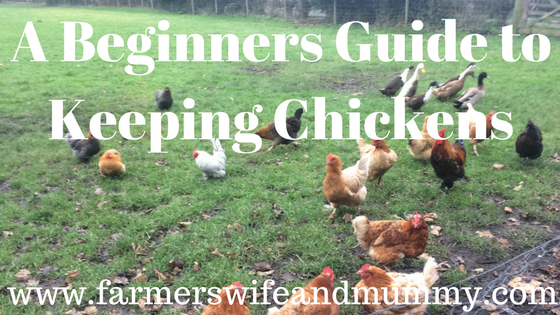
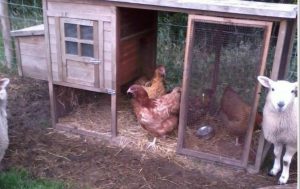
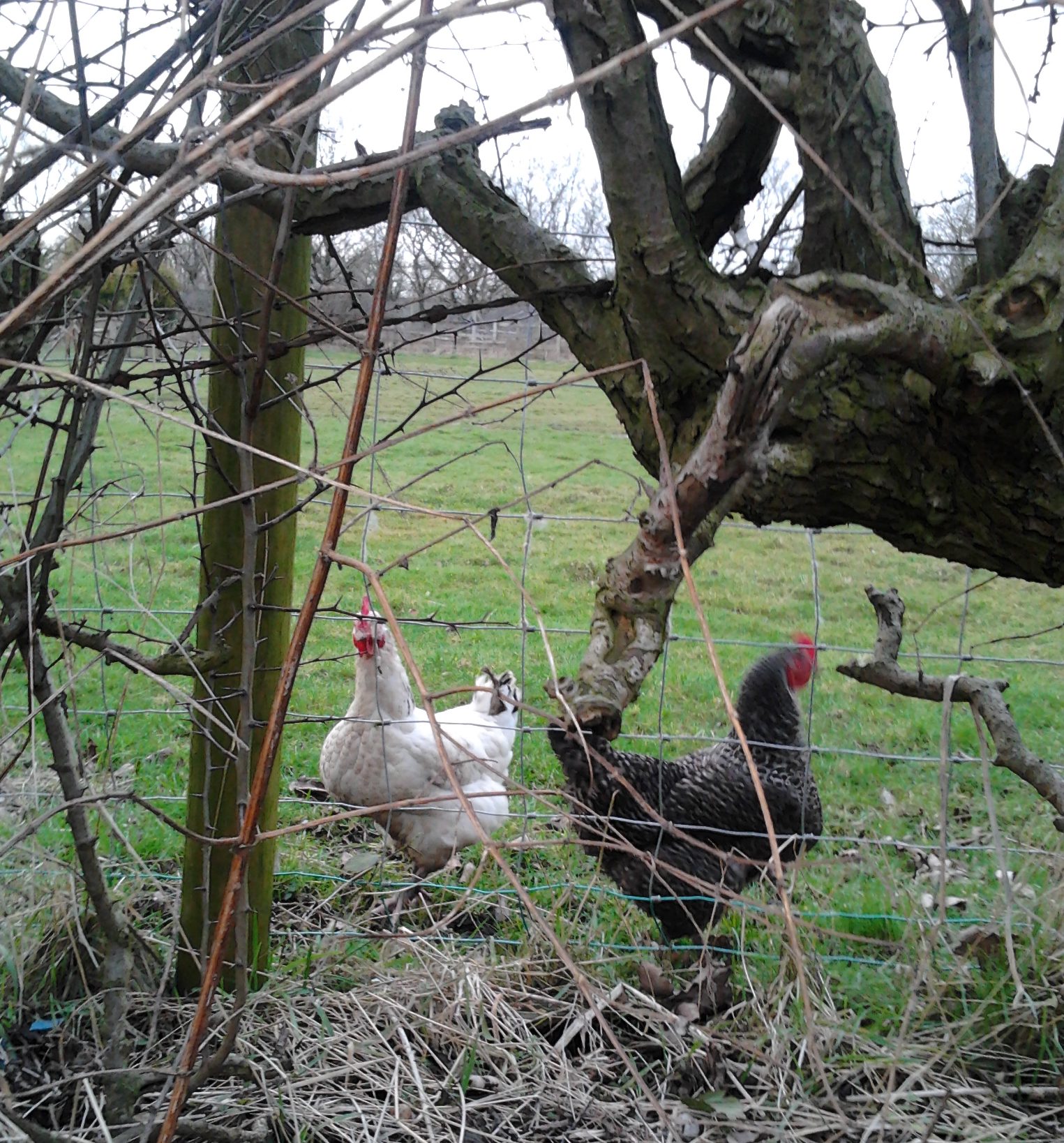
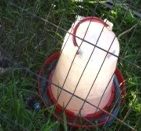
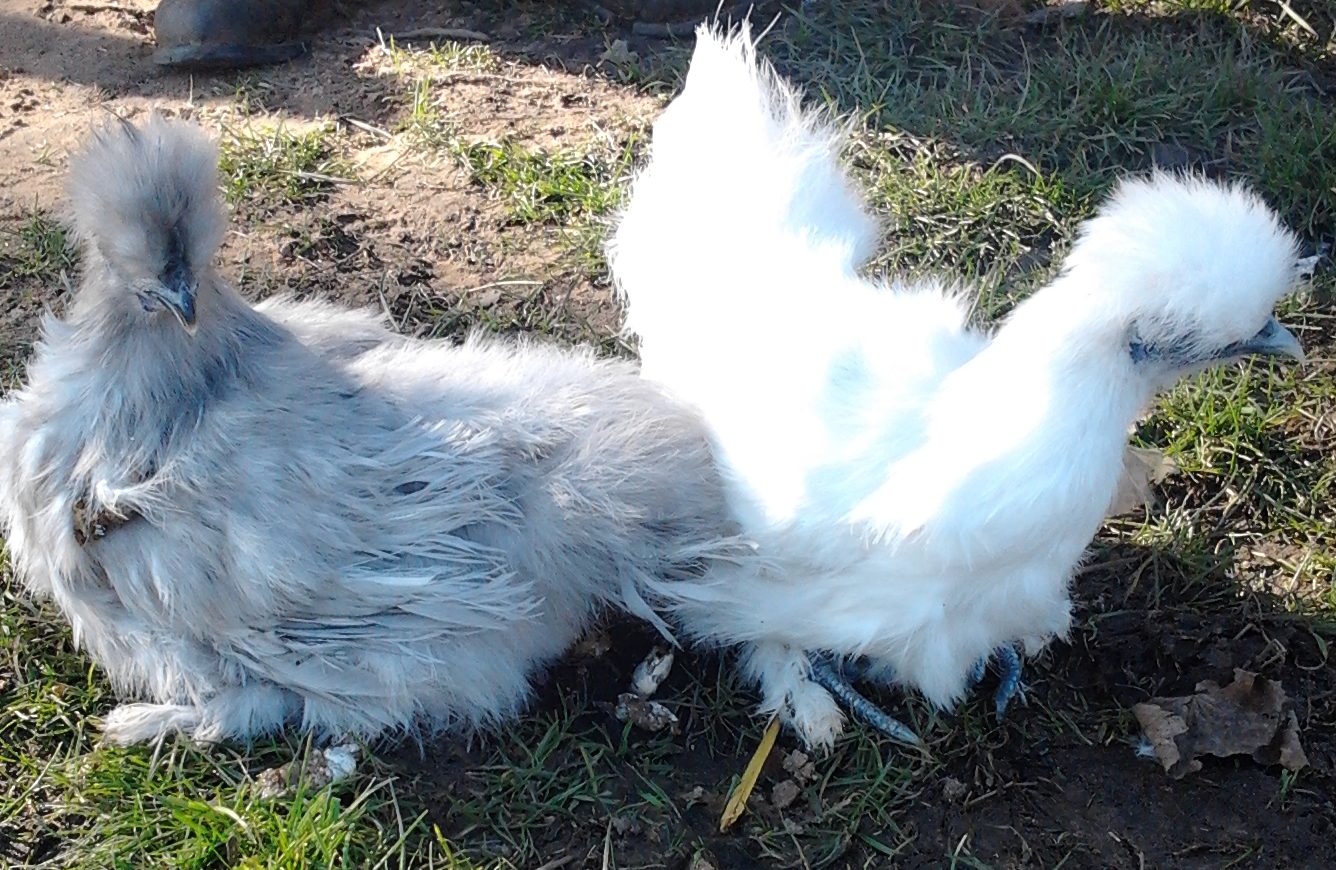
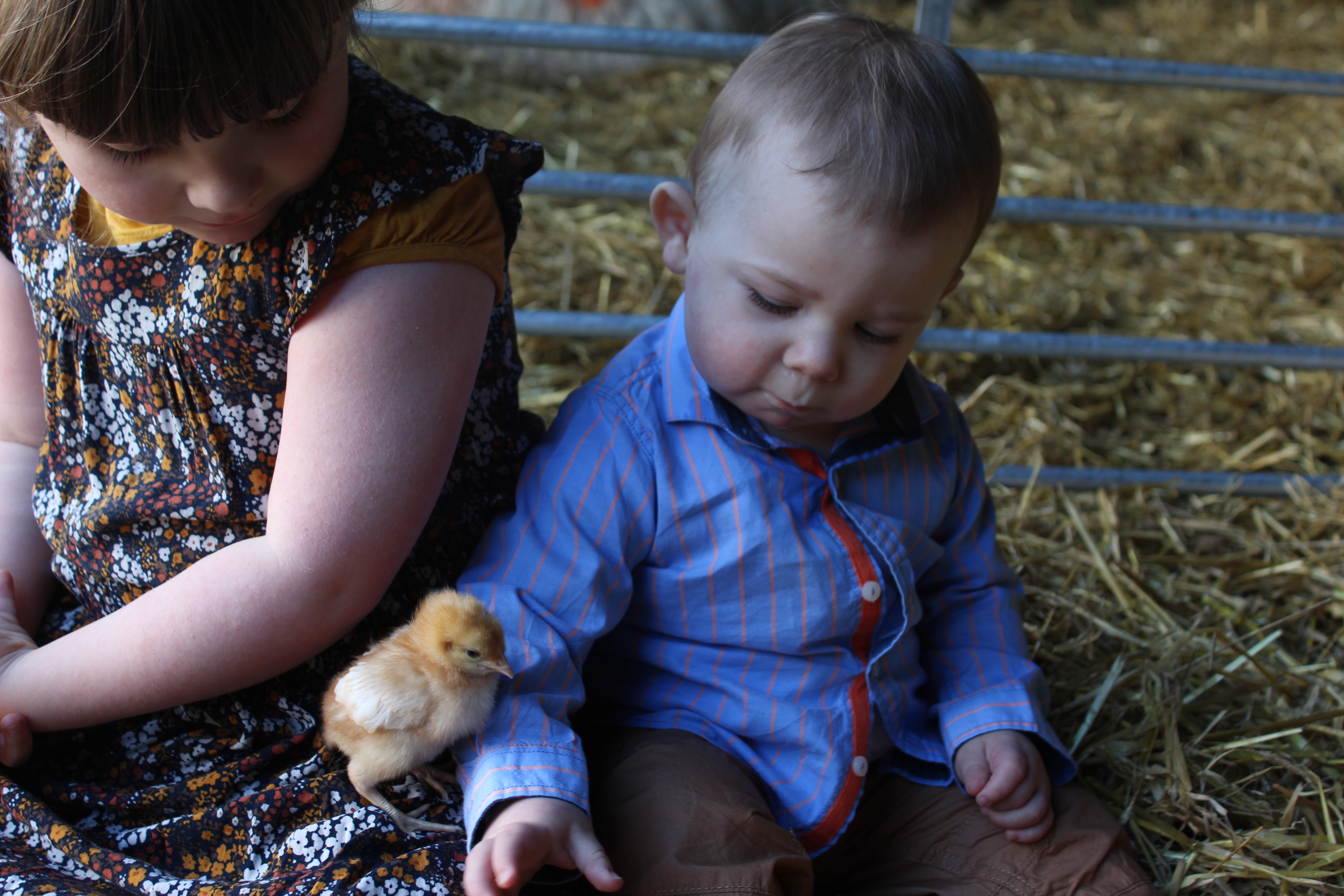
Hi Emma, aww thanks so much for posting! You must of read my mind , I was looking up information for keeping chickens today!
Thanks for sharing your info, Ive joined the fb group 🙂 Never thought of checking house deeds to see if chickens can be kept, such a good piece of advice.
I was wondering how talkative/noisy 🙂 two chickens would be or does it depend on the breed?xxxx
Fantastic and so informative. I’d love chickens but my cat is such a hunter, plus we get so many foxed I just couldn’t bear the thought of buying chickens because I guarantee they wouldn’t last long. Our garden is very boggy too so I’m sure they’d dig under whatever we made! In the future with a better garden though definitely!
Aww this is a lovely post, really helpful and informative. We had 5 chickens couple of years ago – three were bought from a little farm near us from being young, and we rescued the other two from a battery farm. They were absolutely featherless and battered as you can imagine, but we nursed and fed them back to life! When I found out I was pregnant with my third baby I thought it best that we re-home them as I knew we wouldn’t have the time to devote to them. They went to a loving family with kids who adored them 🙂 x
I am not gonna lie, I didn’t know there is so much to keeping chickens! Being a city boy, this is absolutely fascinating to me! Don’t think I could keep chicken in my flats though! 🙂
Rahul
We’ve kept chickens for 7 or 8 years now and this post would have been so handy when we first started out. You are quite right about the foxes – we’ve lost a few over the years, even with the electric fence. We always wanted to hatch our own too but never got round to it….
Oh have a go this year. I can’t wait for chicks 🙂 the children love them
budesonide tablet brand name
buy ozempic
buy ozempic oversees
synthroid 112
synthroid 0.137
animehangover.com
지금까지 Hongzhi 황제는 결정을 내릴 수 없었습니다.
zanetvize.com
Fang Jifan은 미소를 지었습니다. “그, 그 … 당신은?”
buy prednisone online no prescription
prinivil drug
good online mexican pharmacy
synthroid 100mcg tab
over the counter prednisone pills
prednisone 120 mg daily
can you buy metformin over the counter uk
buy valtrex no rx
top 10 pharmacy websites
valtrex discount
azithromycin 500 mg tablet cost
valtrex uk
zestril 2.5 mg
synthroid buy online
ordering lisinopril without a prescription uk
4000 mg metformin daily
discount tadalafil
buy generic synthroid online
metformin 2000 mg daily
canadian pharmacy cialis
buy prednisone with paypal canada
synthroid 150 mg
40 mg lisinopril for sale
synthroid 75 mg price
prednisone 50 mg tablet cost
prednisone by mail
azithromycin canadian pharmacy
otc prednisone
prednisone prescription drug
canadian pharmacy coupon
tadalafil generic pills
where to purchase azithromycin
buying valtrex online uk
synthroid 50 mcg coupon
Hello to all, how is all, I think every one is getting
more from this website, and your views are fastidious in favor
of new visitors.
sure save pharmacy
valtrex no perscrition
your pharmacy online
canada rx pharmacy world
valtrex acyclovir
prednisone medication
where to buy metformin 500 mg
buy prednisone online cheap